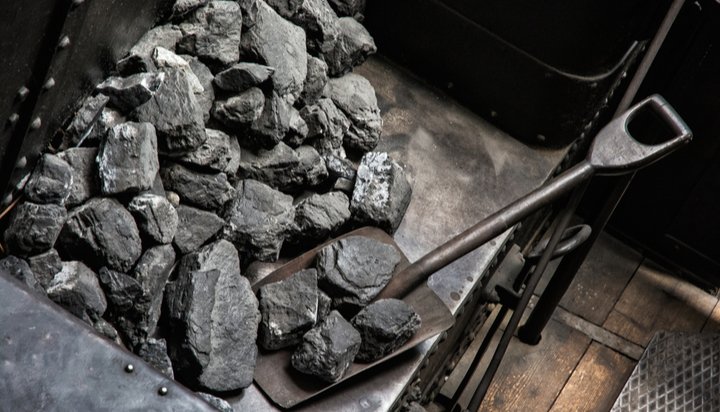11 Dec 2024

Tired Earth
By The Editorial Board

Phasing out all coal for electricity generation in the U.S. by 2030 is necessary both for averting the most dangerous consequences of the climate crisis, and for demonstrating international leadership to motivate other countries to accelerate their transitions. Replacing that power with clean, distributed, renewable energy will also provide more resilient, reliable, affordable power that supports tremendous new economic opportunities, while also protecting public health and relieving communities harmed by environmental injustice.
Despite only accounting for about 20% of U.S. electricity generation, coal produces more than 50% of the electricity sector’s CO2 emissions. Coal-fired power plants are by far the largest source of mercury and sulfur dioxide pollution in the U.S. These toxic pollutants are known to cause a range of health problems for those exposed, including lung conditions like bronchitis, emphysema, and asthma; heart conditions like heart attacks, arrhythmias, and congestive heart failure; and brain and nervous system conditions like strokes.
Each year, particulate matter from coal plants kills more than 6,700 people in the U.S., and causes more than $500 million in healthcare costs. Each step of generating coal electricity— from mining to combustion to the storage of coal ash—historically and currently disproportionately harms vulnerable populations like the elderly and communities of color.
Even if no new coal plants are built, the continued operation of existing power plants would ensure a catastrophic level of climate disruption. To meet the U.S. commitment under the Paris Agreement and hold global warming to 1.5C, power from coal plants must be phased out completely by 2030.
Coal is one of the most expensive sources of electricity, and in most cases is easily replaced with cheaper sources of clean energy. Fortunately, utility-scale solar and wind power are the cheapest energy options available. By 2022, more than 90% of the U.S. coal fleet will be uncompetitive relative to replacement by renewable energy with storage. Globally, building new renewable energy capacity and storage is currently cheaper than continuing to operate 39% of coal capacity. Replacing coal with clean energy could save electricity customers nearly $86 billion around the world in 2022, and $141 billion in 2025.
Efforts to prop up the coal industry with carbon capture and sequestration (CCS) technologies is the last gasp of a fading industry. CCS does not work—look at the imploded Kemper Project in Mississippi and the failed Petra Nova CCS project in Texas. CCS is wildly more expensive than simply replacing coal generation with new clean energy, and plants with CCS still emit toxic nitrous oxide, sulfur dioxide, and particulate matter.
The cost of coal would soar even higher if coal corporations were held accountable to pay the full cost of the environmental and health damages caused by their polluting energy, including fully cleaning up the thousands of abandoned coal mines across the country. Instead, coal companies dump much of these costs on impacted communities and taxpayers.
Ending the billions of dollars’ worth of direct and indirect coal subsidies in the U.S. is long overdue. Building new renewable energy infrastructure will create a whole new generation of jobs and lay the foundation for a more thriving, innovative, and valuable economy in America. We can find ways to employ our fossil fuel workers in their communities and to help those communities build more diverse economies. American workers deserve sustainable clean energy jobs.
Eliminating coal use will help us build a cleaner, healthier, more prosperous society, as evidenced by the new multilateral agreements more than 40 countries recently signed to phase out coal. Ten years ago, 40% of electricity in the UK came from coal, with only 3% coming from wind and solar. As of 2020, the UK is almost entirely coal-free and has the largest offshore wind industry in the world. In late 2021, Germany announced it will move up its coal phase-out date from 2038 to 2030. With the emergence of new coal retirement mechanisms, we expect more countries will follow suit.
The consequences of slow action on climate are global. The climate crisis is causing international instability as resources—such as clean water, sustainable agriculture, and inhabitable spaces—become scarcer. Older infrastructure in the U.S. is breaking down as environmental hazards and natural disasters become more frequent and severe. For example, in my home state of Louisiana, flooding, evacuations, loss of life, and property damage due to catastrophic hurricanes have become an annual occurrence. These climate disasters cost billions and threaten our health, safety, and security.
Most Americans recognize that continuing to burn coal is simply not a viable option for our climate, our health, our security, or our economy. That’s why polls show that large majorities of the U.S. population are worried about the consequences of climate change and that they want stricter pollution controls on coal along with an accelerated transition to clean energy. The question is no longer whether we should phase-out coal generation, but why we aren’t doing it more quickly?
Source : powermag.com
Comment